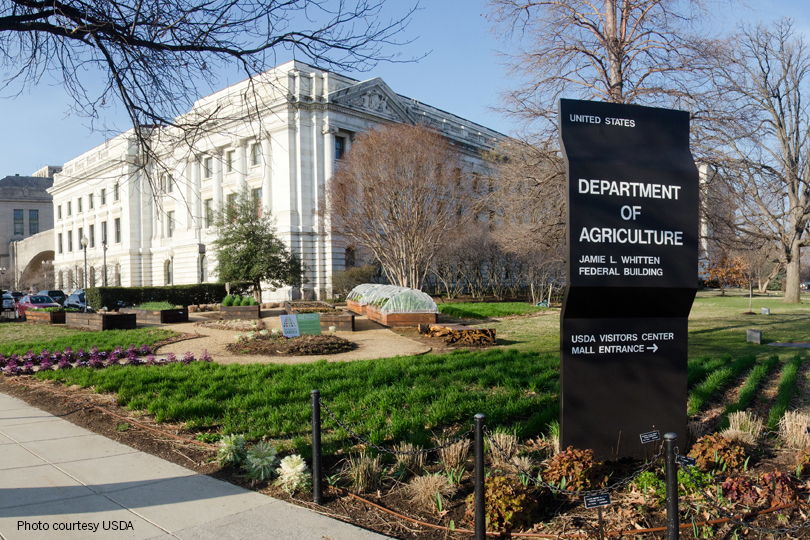By Jennifer Dorsett
Field Editor
Before leaving office, U.S. Secretary of Agriculture Sonny Perdue and Public Health Service Director Adm. Brett Giror released a memorandum of understanding (MOU) overhauling the federal government’s regulatory approach to animal biotechnology.
The MOU follows a June executive order from then-President Donald Trump to modernize the regulatory framework for agricultural biotechnology products. Under the agreement, the U.S. Food and Drug Administration (FDA) would relinquish its authority to regulate genetically-modified/genetically-engineered (GE) food animals to the U.S. Department of Agriculture (USDA).
That executive order called for “regulatory streamlining in order to facilitate the innovation of agricultural biotechnology to the market efficiently, consistently and safely under a predictable, consistent, transparent and science-based regulatory framework.”
Many agricultural organizations, including Texas Farm Bureau (TFB), support primary federal oversight of GE animals originating from USDA.
“We are pleased USDA has taken steps to regulate the use of gene-editing technology in livestock. It holds unlocked potential to benefit agriculture, consumers and the environment,” Tracy Tomascik, TFB associate director of Commodity and Regulatory Activities, said. “It’s important for a number of reasons, but in recent years, animal diseases have challenged farmers and ranchers around the world and disrupted production. African swine fever is a solid example of an opportunity to help animals become more resistant to the virus through genetic engineering, and now we will have regulatory framework to do just that.”
Another way gene editing could be used in livestock is to “turn off” the gene that causes horns to grow in cattle, Tomascik added.
“Ranchers would benefit from producing polled cattle from genetic lines that have always grown horns. That benefits all animals in the herd and the bottom line of the farm,” he said.
According to the details outlined in the MOU, USDA will have authority of GE animals produced for food. FDA will continue to oversee dairy products, table and shell eggs, certain meat products and animal feed “derived from agriculture-amenable species developed using genetic engineering.” FDA also will preserve independent review of “intentional genomic alterations intended for any purpose other than agricultural use, including but not limited to, biopharma (other than veterinary biologics) and non-heritable genomic alteration (e.g., gene therapies).”
Last month, USDA issued an advance notice of proposed rulemaking about transitioning portions of FDA’s pre-existing animal biotechnology regulatory oversight to USDA.
It remains to be seen if President Joe Biden’s administration will issue new rules or continue with the rules as outlined by the previous administration.

